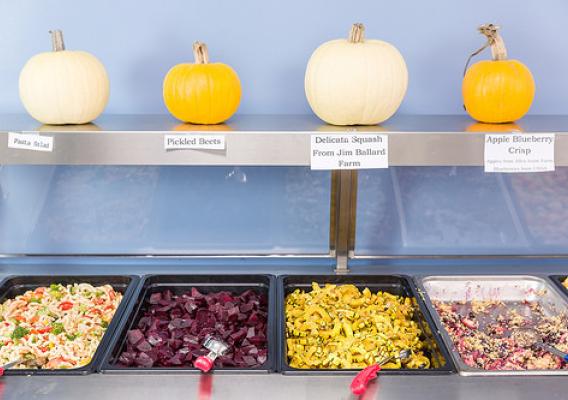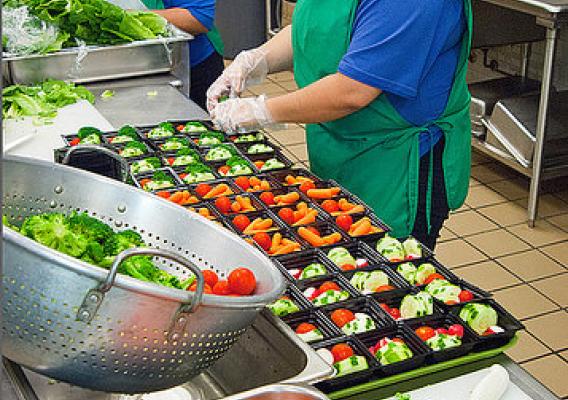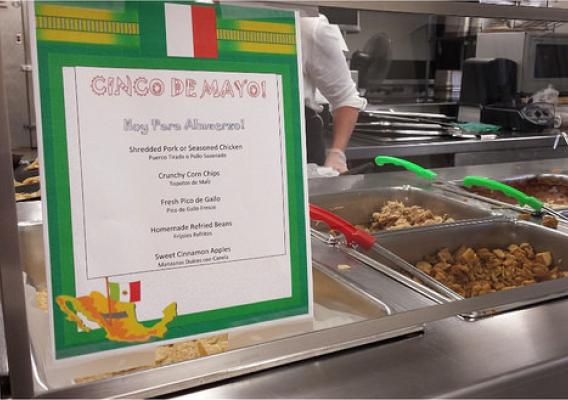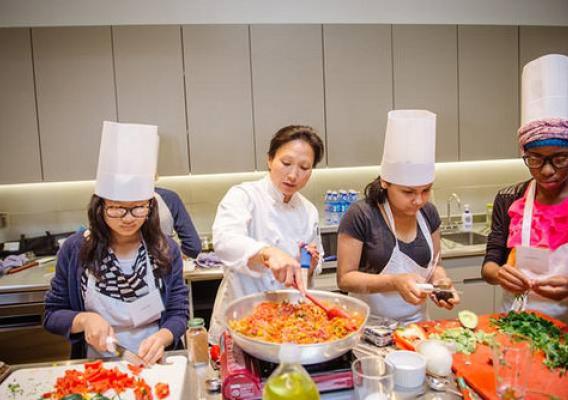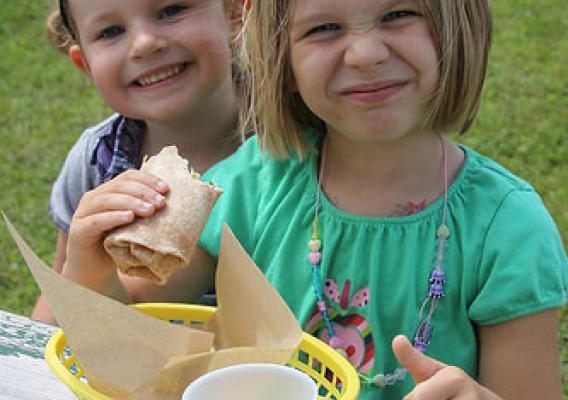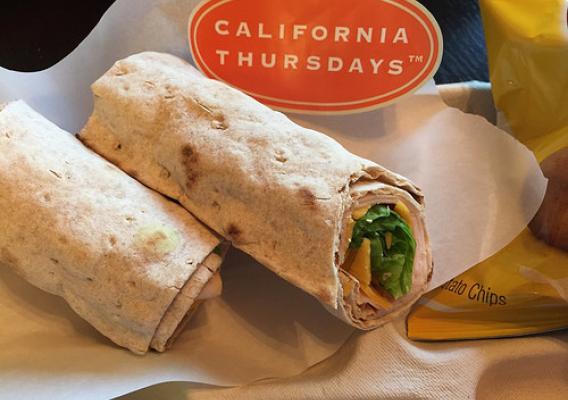It’s that time of year – books, backpacks and a BBQ! That’s right - Minneapolis Public Schools (MPS) is preparing for its annual Farm to School Community BBQ, a much anticipated back-to-school event that kicks off the school year. The following guest blog features inspiring initiatives MPS has implemented to serve local foods to its 35,000 students in the district.
Since 2011, MPS has sourced fresh produce, meats, baked goods and other products from local farmers and manufacturers. Purchasing local foods supports Minnesota farms and small businesses and provides opportunities for students to learn how their food is grown by extending farm to school efforts beyond the cafeteria and into the classroom with visits from farmers and taste-tests.
Farm to school also helps to support another USDA initiative designed to enhance school meals – the What’s Shaking? Creative Ways to Boost Flavor with Less Sodium initiative. Using local foods means that school nutrition programs are preparing more meals from scratch, allowing them to control the amount of sodium. Farm to school gets students engaged and excited about school meals – and with the community BBQ, both kids and their families get a sneak peek at what’s going to be on the lunch menu for the new school year.
By Kate Seybold, Farm to School Coordinator, Minneapolis Public Schools
What better way to ring in the new school year than by celebrating the bounties of local produce that farmers harvest during the back-to-school season? Minneapolis Public Schools (MPS) is hosting its Fifth Annual Farm to School Community BBQ – a community event built around fresh food, families and fun! The event brings together MPS students and their families, school staff, local farmers and vendors, True Food Chef Council members and other community partners in celebration of Minnesota Farm to School Month and our farm to school program.

